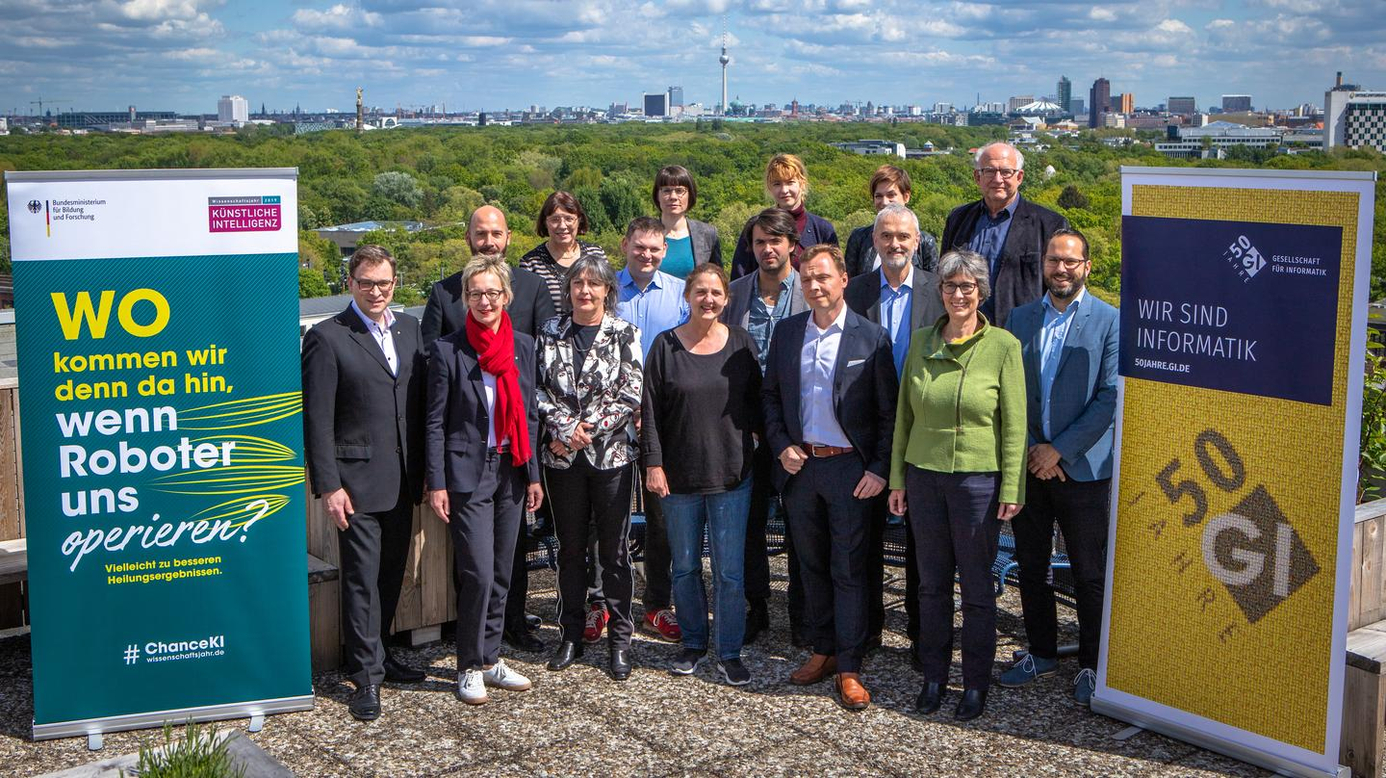The German Informatics Society (GI) has announced the leading influential thinkers and technologies from across German AI history.
A jury consisting of 18 AI experts made the selections during an intensive seven-hour consultation at the Weizenbaum Institute for Networked Society in Berlin. The event was part of the project ” #KI50: Artificial Intelligence in Germany, which seeks to encourage the public to reflect on the German history of AI, its role and impact. The project is funded by the Federal Ministry of Education and Research.
Shaping Minds in German AI History
In the category “ten influential minds in German AI history” awards were presented to:
- Elisabeth André, (human-machine interaction, multi-agent systems)
- Wolfgang Bible, (knowledge representation and reasoning)
- Susanne Biundo-Stephan, (tarpaulin)
- Gerhard Brewka, (Representation of knowledge and conclusions)
- Otthein Herzog, (multi-agent systems/image understanding/applications)
- Bernhard Nebel, (Knowledge Representation and Conclusions/Planning)
- Bernhard Schölkopf, (Machine Learning)
- Jörg H Siekmann, (Representation of knowledge and conclusions)
- Wolfgang Wahlster, (Human-Machine-Interaction/Dialogue Systems)
- Stefan Wrobel, (Machine Learning)
The jury meeting was preceded by a three-week open nomination phase in which more than 80 people were nominated. People who had already died were excluded and will be honoured in a separate award during the course of the year.
Leading German AI Technologies
The following technologies also received awards during the event:
- Autonomous Systems & Autonomous Driving
- Experience-based Systems
- Evolutionary Algorithms and Evolutionary Strategies
- Strategies for Machine Learning
- Data Mining Toolkit
- Configuration
- Automatic Proofing / Deduction Systems
- Document Analysis
- Representation of Knowledge
- Automatic Language Processing: Dialog Systems
Encourage KI discourse in the professional community and beyond
Prof Dr Ingo Timm (chairman of the #KI50 jury) and Dr Matthias Klusch, spokespeople for the GI Artificial Intelligence Department (FBKI), said the awards will contribute to discussion on German AI history: “With #KI50, we explicitly do not want to claim to create an irrevocable top 10 ranking or to cement a historical picture of the AI. We want to make our lists available for discussion. In particular, #KI50 is intended to encourage people to reflect on the long tradition of AI in Germany and perhaps to discover some not yet generally known inventions and persons in German AI history.”
Photo Provided of Jury – caption: The # KI50 jury on the roof of the Weizenbaum Institute Berlin






